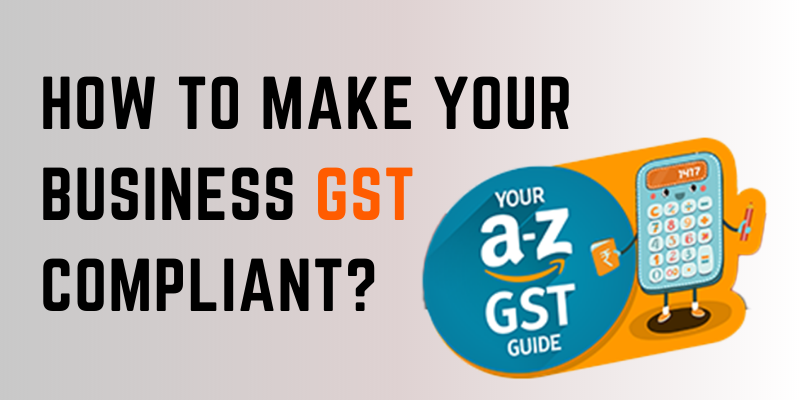The Goods and Services Tax has transformed the taxation landscape in India, simplifying indirect taxes. For businesses, becoming GST compliant is a legal requirement and a strategic decision to thrive in today’s tax landscape. Ensuring GST compliance can be a complicated process, but your company can successfully manage it with the appropriate attitude and expertise. In this blog post, we’ll discuss how to Make Your Business GST Compliant. Join GST Training In Pondicherry at FITA Academy and gain more knowledge in GST.
What is GST Compliance?
The GST Council has established regulations for keeping records, generating invoices, reporting our purchases and sales, and, ultimately, paying our taxes and filing returns. GST compliance is defined as adhering to these laws and regulations. Noncompliance can be costly to a company.
However, several organisations needed help implementing the procedures to become GST-compliant. Here is a fast GST compliance checklist with six steps you may do to get your business GST-ready.
Ensuring GST Compliance for Your Business:
Register for GST
The first step in becoming GST compliant is registering your business on the GST site. Depending on your revenue and business type, you may be required to register for GST either mandatory or voluntarily. Gather all required documents, such as your PAN card, Aadhar card, bank data, and business registration certificates, and register for GST registration online.
Classify Your Goods and Services
GST rates differ depending on the sort of goods and services you provide. To comply with GST, you must accurately classify your items and services under the applicable GST rate slabs. This step is critical for ensuring correct tax estimates and avoiding potential conflicts with tax authorities.
Issue GST-Compliant Invoices
GST-compliant invoices are required to obtain input tax credits and ensure transparency in business operations. Ensure that all essential details, such as GSTIN, invoice number, date of issuance, and HSN/SAC codes for products and services, are included on your invoices. GST Training Classes In Pondicherry provide basics to advanced concepts with real-time projects.
Maintain Accurate Records
To be GST compliant, you must keep accurate and up-to-date records. Record all sales, purchases, input tax credits, and other financial transactions. Ensure you have adequate documentation to support your tax claims and comply with prospective audits.
File GST Returns Regularly
Filing GST returns is a recurring task that every GST-registered business must adhere to. Depending on your business type, you may need to file monthly, quarterly, or annual returns. Ensure timely filing to avoid penalties and interest on late submissions.
Reconcile and Verify GST Returns
To ensure accuracy after filing GST returns, reconcile your financial accounts with the submissions. Verify any inconsistencies and act quickly to fix them. Regular reconciliation aids in error detection and guards against problems during audits.
Claim Input Tax Credits (ITC) Correctly
Input Tax Credits allow you to deduct GST paid on purchases from GST collected on sales. To be eligible for ITC, your suppliers must also be GST compliant and have submitted their forms appropriately. Keep adequate receipts and documentation to back up your ITC claims.
Comply with E-Way Bill Requirements
An E-Way Bill is required to transport goods of a particular value. To comply with GST laws, create and carry the E-Way Bill for interstate and intrastate transportation.
Educate and Train Your Team
Ensure that your accounting and finance team members are well-versed in GST requirements. Invest in training programs to keep them up to date on any changes to GST laws and procedures. Join GST Classes In Pondicherry, which offers certification training with 100% placement assistance.






Recent Comments